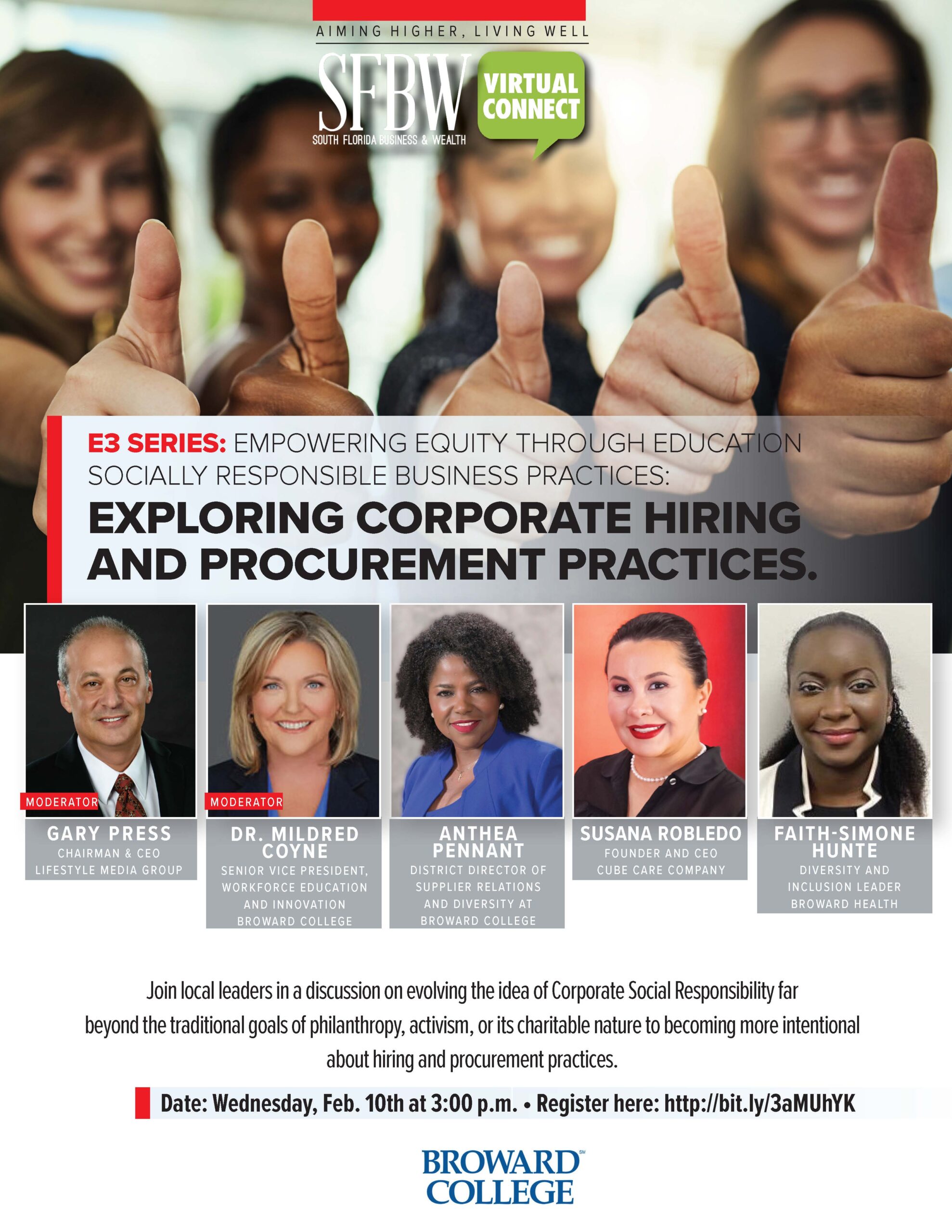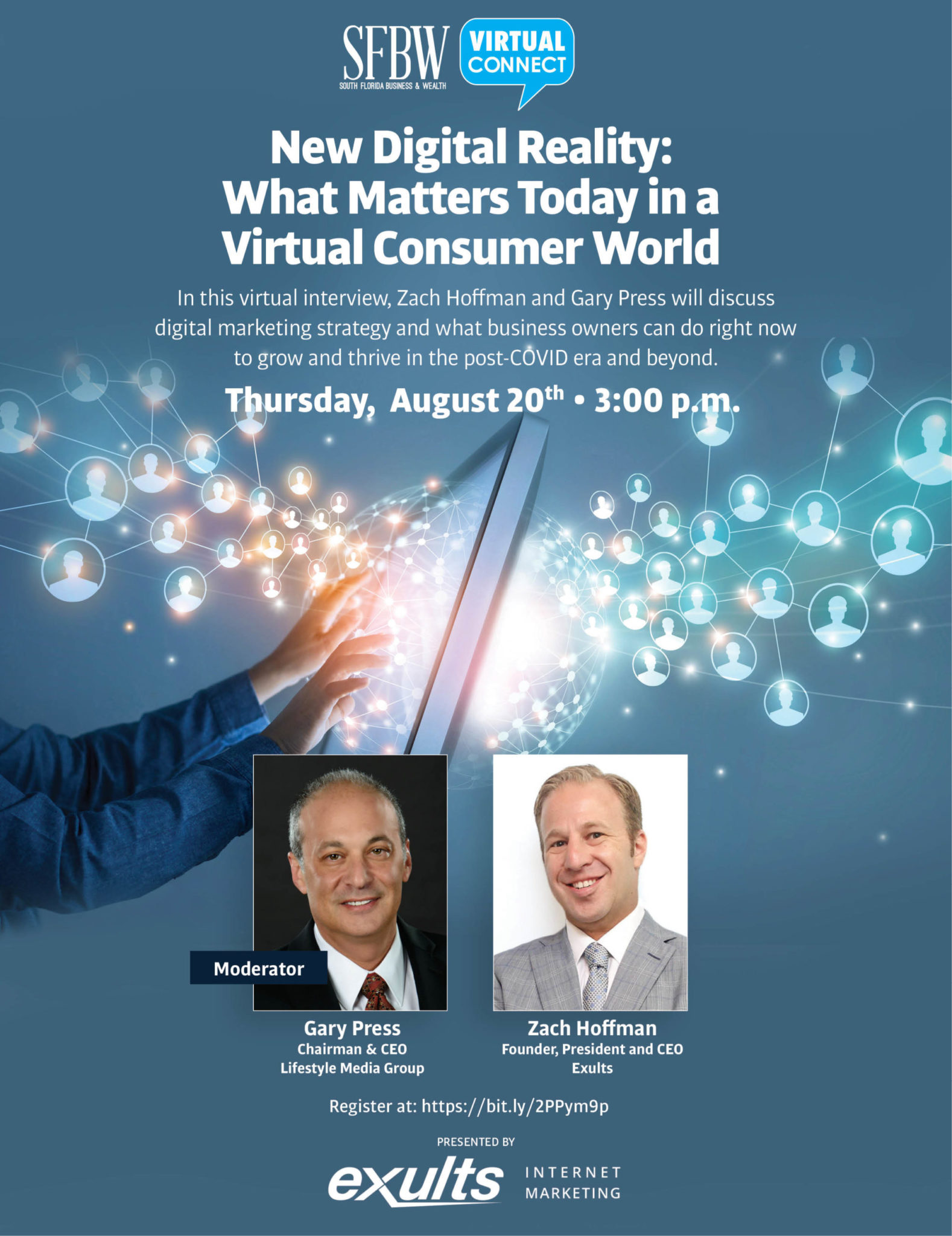As part of SFBW’s Virtual Connect digital roundtable series, three wealth management specialists joined Gary Press, the magazine’s publisher and chairman, to share their thoughts on one of the most attractive ways to make changes in your real estate portfolio while deferring capital gains taxes.
• Grant Conness, managing director and cofounder of Global Wealth Management, an investment management and retirement planning firm located in Fort Lauderdale, serves as president of the 1031 exchange advisers division of the firm. “I work with owners of highly appreciated assets,” he explains, “whether real estate or business interests, to sell their assets and come up with tax strategies on how to relinquish those highly appreciated assets more efficiently.”
• For nearly 13 years, Drew Monaghan has been the owner and president of Private Exchange Group, also based in Fort Lauderdale: “We’re a qualified intermediary for 1031 exchanges, so when an investor that wants to sell a property and buy another one and defer all those taxes from that sale, we will help you do that and process it.”
• Rick Martens is the senior vice president of the Miami-based Inland Securities Corp., and is responsible for developing the sales and educational opportunities for Inland Securities-sponsored investment products. (“We’re the largest 1031 exchange sponsor in the country and we work very closely with financial planners across the United States to help clients solve their deferral and property sales issues.”)
Real estate—particularly in South Florida—is among the most popular asset classes in the economy right now, drawing investors lured by the promise of steady income and limited downside. Yet taxes on capital gains can take a big bite, causing many to hold on to properties they would prefer to sell. Fortunately for those looking to move from one real estate asset into another, a 1031 exchange can defer those taxes while making the transaction as seamless as possible.
“The number 1031 comes from the section of the tax code that basically allows a real estate investor to sell and buy their assets without paying the taxes,” Monaghan says. “They’re deferred because you’re spending all the money into the next asset.”
An intermediary can connect the two halves of the transaction while keeping you safely walled off from the money. “If you touch the money, you pay the tax, so one of the roles of an intermediary is to set up an escrow account where the money from the sale goes,” he explains. “We fund whatever purchases you’re going to make from that account so it’s a bridge between transactions.” When using a 1031 exchange, investors can choose to buy their own replacement properties or move into more actively managed real estate investments that impose less of an administrative burden.
“For people who have owned property a long time, are tired of managing it, and are facing large capital gains, the IRS issued a structure called a Delaware Statutory Trust revenue ruling in 2004, which allows multiple buyers to take ownership into a larger property,” Conness says. “It is real estate, and the investors own the property, so if there’s any appreciation the owners would share in it.”
In addition to offloading of management responsibilities, one of the biggest benefits of DST 1031 exchanges is the ability to move into different areas of real estate. “Clients are now able to go from one single property into a portfolio of institutionally managed properties,” Martens explains. “We have clients who choose more than one DST so they can do different sectors—self-storage, multifamily, grocery—all in one type of investment.”
The 411 on Section 1031
Five takeaways:
1. Happy 100th to Section 1031 of the U.S. Internal Revenue Code. “This year, Section 1031 celebrated its 100-year anniversary,” Monaghan notes. “It started out with the concept of swapping deeds, although the current version of how it’s processed is more recent.”
2. It allows investors to defer taxes by rolling one real estate asset into another. “Think about it as playing Monopoly,” Monaghan suggests. “You take four green houses and swap them for a hotel. The 1031 is the tool that connects them and protects the portfolio each time you’re making moves around that board.”
3. Timing is everything. Monaghan says, “The deadlines start at the closing date of the sale. You have 180 days to finish all your purchases, but you have to know what you’re going to buy by the 45th day, because from day 46 to day 180, the only properties they’ll allow you to buy are on the piece of paper that you identified.”
4. It applies to like-kind assets you’re not living in and not flipping. “Assets that are the same—residence, condo, townhouse, commercial land—are considered like-kind because they’re used as investments, you’re not living in them, and you’re not flipping them,” Monaghan says. “Flipping means you’re using the property to make money when you sell it, not from renting it.”
5. If you’re tired of managing property, consider a DST to become an even more-passive investor. Conness offers this recommendation: “Somebody could sell their duplex and buy into a property leased to Walgreens or a 300-unit apartment building—something professionally managed—and they’d defer the taxes, collect a monthly income stream, and enjoy a passive investment structure.”














